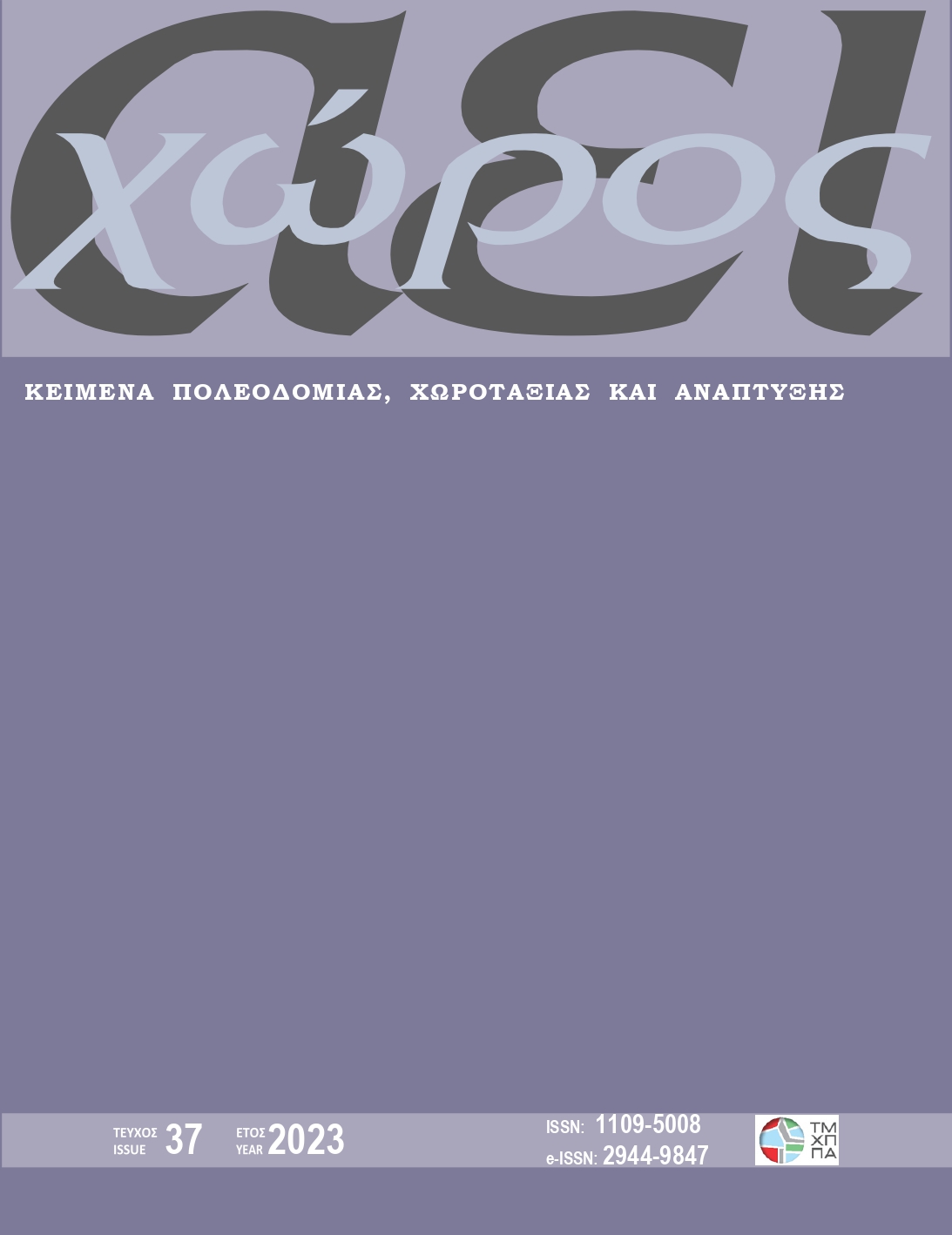Refugees’ spatial management
findings from Germany and Italy after 2015
DOI:
https://doi.org/10.26253/heal.uth.ojs.aei.2023.1641Keywords:
Refugees, Crises, Reception and accommodation facilitiesAbstract
Migration is a voluntary, and sometimes a forced process of movement that is not limited to a local scale. It presents singularities related to global rearrangements and to modern forces that promote mobility. Migration is a social phenomenon that is unfolded in space and the effects for the host countries are related to the temporary (for migrants) or permanent (for refugees) housing of the relocated.
Simultaneously, space is not static, it is shaped by the challenges it faces. The activation of mass refugee movements to Europe after 2015 emerges the need for the spatial approach of the phenomenon, and the study of each factor or selection with spatial content that co-shapes it.
This article explores the position of the European institutions towards the refugee phenomenon and highlights the specific issues that, after 2015, have related to both the spatial options for the establishment of reception and accommodation facilities and the housing rehabilitation of refugees.
The findings lead to the search for corresponding housing and rehabilitation practices in representative EU member states (Germany and Italy). The selection criteria related to the ability of these member states to attract refugee flows over time, while they have different political and administrative systems. The objective is the comparative study of different reception, accommodation, and housing rehabilitation practices for refugees. The objective, also, is the investigation of the factors that related to the adoption of sometimes more restrictive and sometimes more flexible housing rehabilitation practices. The findings highlight the tendency to approach the refugee phenomenon in terms of temporality. The examined member states, like Greece, seem to perceive the refugee events under conditions of risk and crisis management and are led to adopt, in derogation of the established procedures, alternative methods of housing refugee rehabilitation.
Downloads
Downloads
Published
How to Cite
Issue
Section
License
Copyright (c) 2023 Aeihoros: Essays on Spatial Planning and Development

This work is licensed under a Creative Commons Attribution-NonCommercial 4.0 International License.

